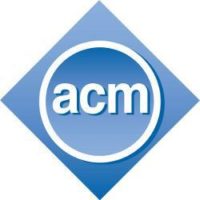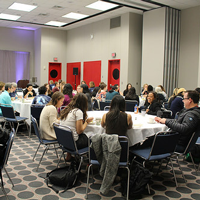2020 Board Election Results and New Appointed Board Members
CRA members have elected three new members to its Board of Directors: Alex Aiken, Cindy Bethel and Fatma Özcan. Nancy Amato, Carla Brodley, Dan Grossman and Kim Hazelwood were re-elected to the CRA board. Mary Hall and Mark Hill, who held non-elected positions on the board, have also been elected. All of their terms run from July 1, 2020 through June 30, 2023. CRA would like to thank everyone who agreed to run this year.
There have also been changes to the appointed members to the board. Kathleen Fisher has been appointed the new ACM representative, replacing Mary Hall and joining Alexander Wolf. Beginning July 1, Liz Bradley will replace Mark Hill as the CCC Chair and representative on the board.
Retiring from the board as of June 30, are Susan Davidson, Brent Hailpern, Susanne Hambrusch, and Barbara Ryder. CRA thanks them all for contributions during their service on the board.
 Alex Aiken
Alex Aiken
Alex Aiken is the Alcatel-Lucent Professor of Computer Science at Stanford. He received his Bachelor’s degree in computer science and music from Bowling Green State University in 1983 and his Ph.D. from Cornell University in 1988. Aiken was a research staff member at the IBM Almaden Research Center (1988-1993) and a professor in the EECS department at UC Berkeley (1993-2003) before joining the Stanford faculty in 2003. His research interest is in areas related to programming languages. He is an ACM Fellow, a recipient of ACM SIGPLAN’s Programming Languages Achievement Award and Phi Beta Kappa’s Teaching Award, and a former chair of the Stanford Computer Science Department.
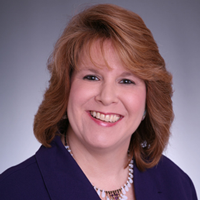 Cindy Bethel
Cindy Bethel
Cindy L. Bethel, Ph.D. (IEEE and ACM Senior Member) is a professor in the Computer Science and Engineering Department and holds the Billie J. Ball Endowed Professorship in Engineering at Mississippi State University (MSU). She is currently serving in the role of special assistant vice president (intern) for the MSU Office of Research and Economic Development. She was the 2019 U.S. Fulbright Senior Scholar sponsored by the University of Technology Sydney. She is the director of the Social, Therapeutic, and Robotic Systems (STaRS) lab and a research fellow with the MSU Center for Advanced Vehicular Systems Human Performance Group and the MSU Social Science Research Center. Bethel has managed over $12 million dollars in research funding since starting as an assistant professor at Mississippi State University in August 2011. She has published over 96 peer reviewed journal articles, conference papers, and workshop papers in prestigious venues. She has been active in her professional research community serving on the Steering Committee for the ACM/IEEE International Conference on Human-Robot Interaction (HRI) and the ACM Transactions on Human-Robot Interaction (2015-2019). Bethel was an NSF/CRA/CCC Computing Innovation Postdoctoral Fellow in the Social Robotics Laboratory at Yale University. From 2005 – 2008, she was a National Science Foundation Graduate Research Fellow and was the recipient of the 2008 IEEE Robotics and Automation Society Graduate Fellowship. She graduated in August 2009 with her Ph.D. in computer science and engineering from the University of South Florida. Her research interests include human-robot interaction, human-computer interaction, robotics, and artificial intelligence. Her research focuses on applications associated with robotic therapeutic support, information gathering from children, and the use of robots for law enforcement, search and rescue, and military.
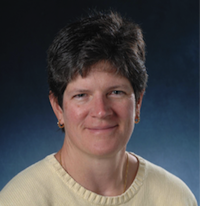 Liz Bradley
Liz Bradley
Liz Bradley received the S.B., S.M., and Ph.D. degrees from the Massachusetts Institute of Technology in 1983, 1986, and 1992, respectively, including a one-year leave of absence to compete in the 1988 Olympic Games. She has been with the Department of Computer Science at the University of Colorado at Boulder since January of 1993; she also holds appointments and affiliations with a variety of engineering departments. Her current research activities focus on nonlinear dynamics and chaos, as well as scientific computation and AI. She is the vice chair of the CCC Council and a member of Eta Kappa Nu, Tau Beta Pi, and Sigma Xi, as well as the recipient of a National Young Investigator award, a Packard Fellowship, and the 1999 College of Engineering teaching award.
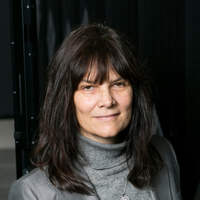 Kathleen Fisher
Kathleen Fisher
Professor Kathleen Fisher is chair of the Computer Science Department at Tufts University. Previously, she was a program manager at DARPA and a principal member of the technical staff at AT&T Labs Research. She received her Ph.D. in computer science from Stanford University. Fisher is a Fellow of the Association of Computing Machinery (ACM) and a Hertz Foundation Fellow. Service to the community has been a hallmark of her career. She served as chair of the ACM Special Interest Group in Programming Languages (SIGPLAN) and as program chair for three of SIGPLAN’s marquee conferences: Programming Language Design and Implementation (PLDI), Object-Oriented Programming Languages, Systems, and Applications (OOPSLA), and the International Conference on Functional Programming (ICFP). She has also served as associate editor of ACM’s Transactions on Programming Languages and Systems (TOPLAS) and as an editor of the Journal of Functional Programming. Fisher has long been a leader in the effort to increase diversity and inclusion in Computer Science: she was co-chair of the Computing Research Association’s Committee on the Status of Women (CRA-W) for three years, and she co-founded SIGPLAN’s Programming Language Mentoring Workshop (PLMW) Series. Kathleen is a recipient of the SIGPLAN Distinguished Service Award. She is chair of DARPA’s ISAT Study Group and a member of the Board of Trustees of Harvey Mudd College.
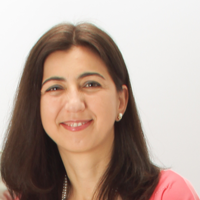 Fatma Özcan
Fatma Özcan
Fatma Özcan is a principal research staff member and a senior manager at IBM Almaden Research Center. Her current research focuses on platforms and infra-structure for large-scale data analysis, knowledge graphs, democratizing analytics via NLQ and conversational interfaces to data, and query processing and optimization of semi-structured data. Özcan received her Ph.D. in computer science from University of Maryland, College Park, and her B.Sc. in computer engineering from METU, Ankara. She has over 19 years of experience in industrial research, and has delivered core technologies into many IBM products. She is the co-author of the book Heterogeneous Agent Systems and co-author of several conference papers and patents. Özcan is an elected member of the SIGMOD Executive Committee, and is on the board of trustees for the VLDB Endowment. She is an ACM Distinguished Member.


